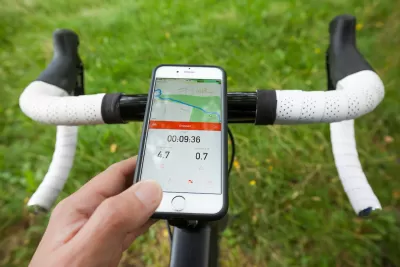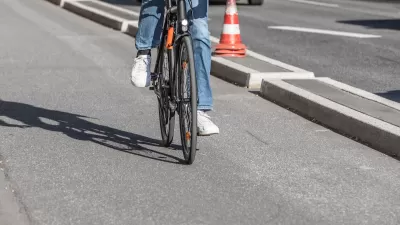Strava just announced the ten-year anniversary of Metro, a proprietary web platform that provides data insights to partner organizations to make active transportation better for cyclists and pedestrians.

The mobile app Strava, which incorporates social networking features, is a popular tool for tracking physical activity. Starting out tracking mostly outdoor cycling and running activities using Global Positioning System data, Strava now incorporates various other exercise types including indoor activities. Strava just announced the ten-year anniversary of Metro, the web platform that provides data insights to make active transportation better for cyclists and pedestrians. With Metro, Strava's goal is to power smarter and more sustainable infrastructure globally and to give back to the communities that support millions of users around the world.
Created in 2013, Metro provides de-identified, aggregated bicycle and pedestrian trip insights to planners, advocacy groups, researchers, and other interested parties. Active community members who have opted-in and track their trips on Strava are anonymously feeding into the Metro dataset and in turn, helping planners and transportation experts in their communities to understand mobility patterns, identify opportunities for investment, and evaluate the impact of infrastructure changes, giving more opportunity through improved transportation access.
Examples of organizations that have successfully applied Strava Metro data include the Atlanta Department of Transportation, Los Angeles County Department of Parks and Recreation, the city of Paris, and the government of Catalonia. Globally, users have uploaded more than eight billion activities to Strava and nearly five billion miles traveled by walking or cycling. When the community contributes their activities to Metro, they become a critical part of one of the world’s largest collections of mobility data.
FULL STORY: Strava’s Metro Reaches Significant Milestone of 10 Year Anniversary

Planetizen Federal Action Tracker
A weekly monitor of how Trump’s orders and actions are impacting planners and planning in America.

Maui's Vacation Rental Debate Turns Ugly
Verbal attacks, misinformation campaigns and fistfights plague a high-stakes debate to convert thousands of vacation rentals into long-term housing.

San Francisco Suspends Traffic Calming Amidst Record Deaths
Citing “a challenging fiscal landscape,” the city will cease the program on the heels of 42 traffic deaths, including 24 pedestrians.

Defunct Pittsburgh Power Plant to Become Residential Tower
A decommissioned steam heat plant will be redeveloped into almost 100 affordable housing units.

Trump Prompts Restructuring of Transportation Research Board in “Unprecedented Overreach”
The TRB has eliminated more than half of its committees including those focused on climate, equity, and cities.

Amtrak Rolls Out New Orleans to Alabama “Mardi Gras” Train
The new service will operate morning and evening departures between Mobile and New Orleans.
Urban Design for Planners 1: Software Tools
This six-course series explores essential urban design concepts using open source software and equips planners with the tools they need to participate fully in the urban design process.
Planning for Universal Design
Learn the tools for implementing Universal Design in planning regulations.
Heyer Gruel & Associates PA
JM Goldson LLC
Custer County Colorado
City of Camden Redevelopment Agency
City of Astoria
Transportation Research & Education Center (TREC) at Portland State University
Jefferson Parish Government
Camden Redevelopment Agency
City of Claremont





























